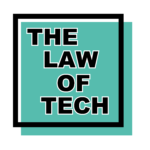S2E1 | Predictions, promises and expectations in light of the European Data Strategy w/ Thomas Tombal

What will 2022 bring for the European Data Strategy?
In 2020, the European Commission unveiled its data strategy, which looks to make the EU a leader in our data-driven society, empowering people, businesses and organisations to make better decisions based on insights from data, which should be available to all. While it has been frequently stressed that the EU has missed the boat in terms of consumer data at the height of the platform explosion not too long ago, through the European Data Strategy the EU is currently seeking to redress the balance by strengthening its position among global leaders in the data economy. Although certainly only the beginning of the story, 2022 promises to be a pivotal year for the European Data Strategy as it will require the EU to at least find a balance, establish some of the necessary trade-offs and come to a reasoned compromise in terms of how to move forward from here to ensure that all puzzle pieces that make up the European Data Strategy fit well together and with other existing EU instruments.
In this episode of The Law of Tech Podcast, I discussed predictions, promises and expectations in light of the European Data Strategy with Thomas Tombal, post-doctoral researcher at TILT and TILEC at Tilburg University.
Want to know more? Take a listen to the podcast episode on your podcast platform of preference!
